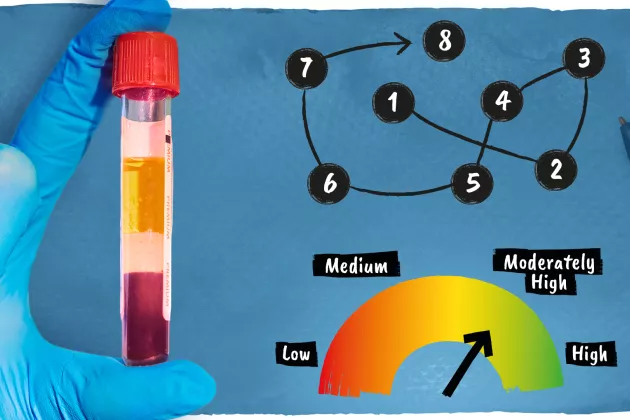The initiative, "Early Diagnosis and Prognosis of Alzheimer's Disease (EDAP-AD)", brings together researchers in a broad field of knowledge in research, diagnosis and treatment of Alzheimer's disease.
- Using state-of-the-art methods for machine learning, we can define, validate and implement available and cost-effective Alzheimer's biomarkers for diagnostics. This is to, among other things, facilitate the development of disease-modifying treatments. We will also ensure that we recruit groups that are normally underrepresented in this type of study so that the results can be used in regular care in the future, says Oskar Hansson.
Collaboration with patient organizations, industry and decision-makers
An important purpose for the international research team is to develop diagnostic tools in close communication with patient organizations and thus ensure that healthcare can meet the needs of those affected.
During the last ten years, Oskar Hansson has performed internationally recognized and outstanding clinical and translational research focusing on the earliest phase of Alzheimer's and Parkinson's diseases.
- We will also have a collaboration with the pharmaceutical industry, as well as decision-makers in healthcare, to facilitate implementation in healthcare, he says.
Alzheimer's disease today affects the function and quality of life of at least 50 million people worldwide. The disease also poses a huge socio-economic burden.
There are currently no simple but safe diagnostic methods that can be used in primary care specifically. But in recent years, Oskar Hansson and his colleague Sebastian Palmqvist have published several notable scientific studies on diagnostic tools for early detection of Alzheimer's. Among other things, they describe a new blood test that detects Alzheimer's disease even before the first symptoms have developed, and they have also established a prognostic algorithm that can predict with great certainty who will get Alzheimer's disease.
- We need diagnostic algorithms that are based on time- and cost-effective tests, which are also easily accessible. This can be a combination of blood tests and short cognitive tests that ensure diagnosis and prognosis and thus facilitate the introduction of correct treatment.
Early detection to develop antiretroviral drugs
In order to accelerate the development of drugs that can slow down or even stop the disease, the screening must also be optimized to be able to identify individuals with Alzheimer's even before they have symptoms that lead to disability in everyday life.
- We must be able to identify people with Alzheimer's very early in the process, preferably before symptoms develop. This is to be able to investigate whether early insertion of the new drugs that remove amyloid in the brain can prevent dementia from developing later in life. This is what we hope to achieve within this teamwork, says Oskar Hansson.




